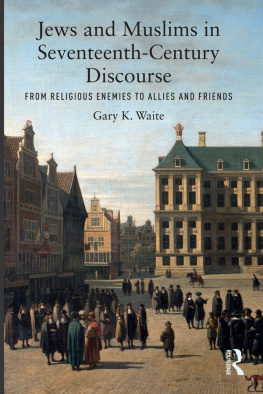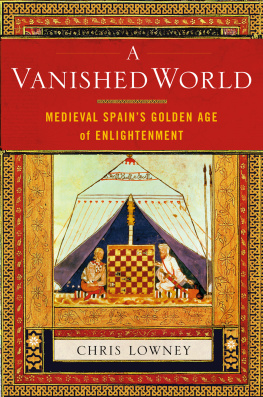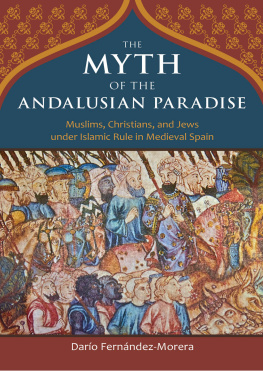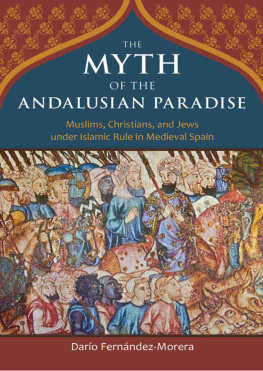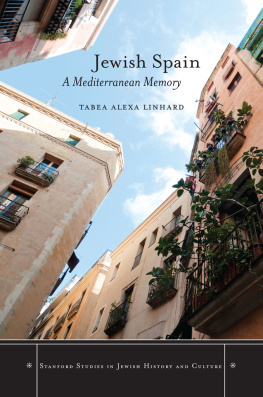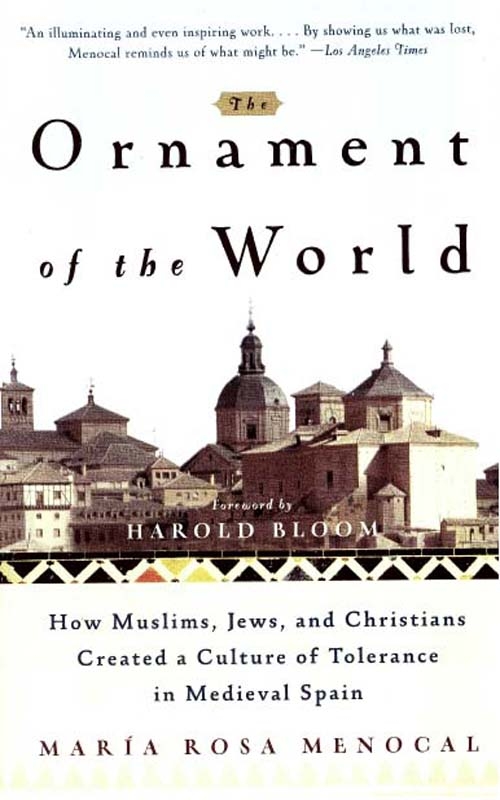The Ornament of the World
How Muslims, Jews, and Christians Created a Culture of Tolerance in Medieval Spain

The rich and remarkable landscape that we behold in The Ornament of the World dates all the way back to the so-called Dark Ages, but the book itself could not be more timely or more encouraging. Maria Rosa Menocal shows us a rare moment in history when Muslims, Christians, and Jews found a way to live with each other in peace and prosperity. An illuminating and even inspiring work.
Jonathan Kirsch, Los Angeles Times
Menocal tells the story exceptionally well, giving a skillful overview of the political history before turning to vignettes of people and places that illustrate the periods innovations in poetry, fiction, architecture, and philosophy. She successfully drives home an important lesson for a multicultural America fighting fanaticism externally and internally: We can go down the road of narrow purity and prejudice and destroy ourselves in the process. Or we can learn to live together, respecting differences while trying to produce a society that uses the best that everyone has to offer.
Anne Bartlett, Miami Herald
Menocal displays a lavish sense of place that should be the envy of many novelists, telling an engaging story in detail without ever alienating the general reader. Her seductively written history serves as both a testament to past tolerance and the hope of a peaceful future. The lessons of Andalusian history surely have never been more timely.
John Green, Booklist
A resonant and timely case of a time when followers of the three monotheisms set aside their differences and tried to get along. An unusually graceful study, a sturdy and eminently readable exploration of the unknown depths of cultural tolerance and symbiosis in our heritage that may help revise our view of the Middle Ages.
Kirkus Reviews (starred review)
Little, Brown has chosen the perfect moment to publish The Ornament of the World, by Maria Rosa Menocal. It is a history of medieval al-Andalus or Andalusia: a culture where there was extensive cooperation and even symbiosis among Muslims, Jews, and Christians, and where civilization touched a point hardly surpassed since fifth-century Athens. It is no exaggeration to say that what we presumptuously call Western culture is owed in large measure to the Andalusian enlightenment. This book partly restores to us a world we have lost, a world for which our current monotheistic leaderships do not even feel nostalgia.
Christopher Hitchens, Nation
Just when we are in most need of its memory and reassurance, Maria Rosa Menocal offers us her gift of al-Andalus. In her splendid retelling of the rise and fall of the great Muslim civilization of Spain, the magical and the tragic mingle, as inspiration and warning. For all those who believe that religion still has a role to play in helping humanity heal and evolve, this is essential reading.
Yossi Klein Halevi, author of At the Entrance to the Garden of Eden: A Jews Search for God with Christians and Muslims in the Holy Land
Subtle and far-reaching. The Ornament of the World centers on a series of vignettes, offering a portrait of an epoch, a place, and, above all, an ethos of tolerance. Maria Menocal has written an exquisitely crafted book that exudes a lyrical, poetic quality while managing, brilliantly, to capture the sweetness and light of Andalusia. This celebration and melancholic remembrance serves as a useful reminder of what once was and what could be.
Emran Qureshi, National Post (Canada)
In this splendid historical survey, Menocal narrates the story of Islams development in the West as well as the tale of how Christianity, Judaism, and Islam once flourished side by side, tolerating one another and borrowing language, art, and architecture from each other. Menocal demonstrates that despite the intractable differences among these three religions they shared a belief that their contradictions could be productive and positive. Engaging prose and lucid insights provide glimpses into a little-discussed chapter of religious history.
Publishers Weekly
Focused on personal stories, The Ornament of the World makes a lively read and gives us a fascinating insight into the history of almost 800 years. We are indebted to Ms. Menocal for opening up an important period of history that has remained mostly a subject for specialists. The Ornament of the World is timely. Since the Islamic menace has seemingly replaced the red one after the Cold War, and since a great fear of extremist Islamic fundamentalism has gripped the West following September 11, it is all the more important to see another face of Islam.
Claudia Roden, Wall Street Journal
The Arabic Role in Medieval Literary History:
A Forgotten Heritage
Writing in Dantes Cult of Truth
from Borges to Boccaccio
Shards of Love:
Exile and the Origins of the Lyric
The Cambridge History of Arabic Literature:
Al-Andalus (COEDITOR)
For un hombre sincero de donde crece la palma
my father, the intrepid Enrique Menocal,
who has lived in lifelong exile
from his own land of the palm trees
Copyright 2002 by Maria Rosa Menocal
All rights reserved. Except as permitted under the U.S. Copyright Act of 1976, no part of this publication may be reproduced, distributed, or transmitted in any form or by any means, or stored in a database or retrieval system, without the prior written permission of the publisher.
Back Bay Books / Little, Brown and Company
Warner Books, Inc.,
Hachette Book Group
237 Park Avenue
New York, NY 10017
Visit our website at www.HachetteBookGroup.com
www.twitter.com/littlebrown
First eBook Edition: November 2009
Originally published in hardcover by Little, Brown and Company, May 2002 First Back Bay paperback edition, April 2002
Back Bay Books is an imprint of Little, Brown and Company. The Back Bay Books name and logo are trademarks of Hachette Book Group, Inc.
ISBN: 978-0-316-09279-1

THE ISLAMIC WORLD IN THE SEVENTH
THROUGH TENTH CENTURIES 22-23
AL-ANDALUS, 1009-1248: FROM THE TAIFA KINGDOMS
TO THE FALL OF THE ALMOHADS 38
KINGDOMS OF THE IBERIAN PENINSULA
FROM 1248 TO 1492 48
Foreword
by
Harold Bloom

Mara Rosa Menocal begins this poignant story in Damascus in 750, and ends at Granada in 1492, the year of the expulsion of the Moors and the Jews from Spain. Menocals epilogue, Andalusian Shards, uncannily recounts the destruction, exactly five hundred years later, of the National Library in Sarajevo by Serbian artillery. Between the brutal disaster of 1492, the work of Spanish Catholicism, and the 1992 cultural atrocity, the deliberate achievement of Serbian Orthodox Christians, Menocal stations my favorite pages in this book, dealing with the publication of the first part of Cervantes Don Quixote in 1605. That was also the year Shakespeare put on the first performance of


